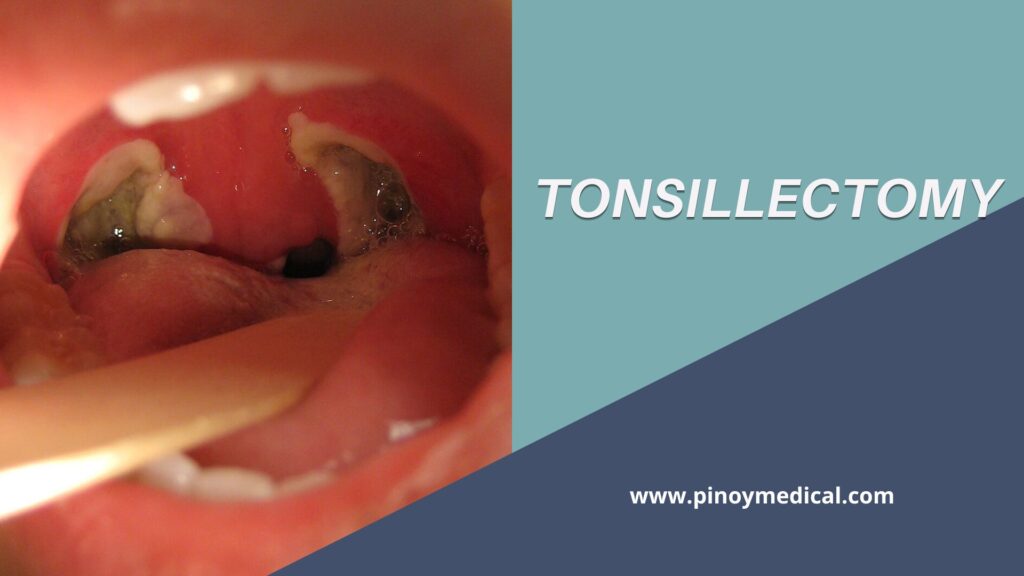The tonsils, two tiny glands in the back of the throat, can be removed surgically with a tonsillectomy. This procedure is mostly used to manage chronic tonsillitis, recurring throat infections, and breathing problems brought on by enlarged tonsils. Its goals are to reduce symptoms and enhance general health. When performed by experienced otolaryngologists, tonsillectomy surgery improves the quality of life for people with chronic tonsil problems by providing relief.
Tonsillectomy Surgery Price
The cost of tonsillectomy surgery differs according to the hospital or clinic, the experience level of the surgeon, and the particular needs of the operation. The price might range from ₱20,000 to ₱80,000 or higher on average. In order to get precise price information and to find out about any additional costs related to preoperative consultations, post-operative care, and anesthesia, patients are urged to speak with healthcare providers directly.

Popular Hospitals/Labs that Offer Tonsillectomy Surgery in the Philippines
The credibility of the hospital, its location, the level of excellence of the technology and medical equipment on offer, the expertise and knowledge of the surgeon, and any extra services that are included in the package (like preoperative consultations, post-operative care, and follow-up appointments) all play a role in the wide range in tonsillectomy surgery costs across healthcare facilities. Due to their cutting-edge amenities and world-class specialists, higher-end hospitals might charge more, but smaller clinics might have more reasonable options.
| Hospital/Lab | Location | Contact | |
| Manila Doctors Hospital | 667 United Nations Ave., Ermita, Manila PH | (+632) 8558-0888 | [email protected] |
| The Medical City | Ortigas Ave, Pasig, Metro Manila | (+632) 8-988-1000 | [email protected] |
| Asian Hospital & Medical Center | 2205 Civic Dr, Alabang, Muntinlupa, 1780 Metro Manila | +(632) 8-876-5755 | [email protected] |
| Manila Doctors Hospital | 667 United Nations Ave, Ermita, Manila, 1000 Metro Manila | (+632)8558-0888 | [email protected] |
| World Citi Med | 960 Aurora Boulevard, Quezon City, Metro Manila | +639565371211 | [email protected] |
| St. Luke’s Medical Center – Quezon City | 279 E Rodriguez Sr. Ave,Quezon City, Philippines | +63-2-8723-0101 | [email protected] |
| Beverly Hills Medical Group | 57 Paseo de Roxas, Makati, 1226 Metro Manila | (02) 8819 0210 | [email protected] |
Video about Tonsillectomy
FAQs
How long does a tonsillectomy surgery take?
While tonsillectomy procedures vary in length, they typically take 30 to 60 minutes to accomplish while under general anesthesia.
How can I prepare for tonsillectomy surgery?
Fasting before the treatment, making travel and hotel arrangements, and talking with your doctor about any current drugs or supplements you use are among the preparations for tonsillectomy surgery.
What are the common reasons for undergoing tonsillectomy surgery?
Patients with recurrent tonsillitis, recurrent throat infections, obstructive sleep apnea, or trouble swallowing as a result of swollen tonsils are frequently advised to have tonsillectomy surgery.
Is tonsillectomy surgery performed on adults and children alike?
Absolutely, tonsillectomy surgery is safe for both adults and children, albeit the risks and benefits vary depending on the patient’s age and medical background.
How long is the recovery period after tonsillectomy surgery?
Though everyone’s recovery time is different, most people recover in 1 to 2 weeks following tonsillectomy surgery, with mild to severe pain and tenderness in the throat in the early postoperative days.
What are the potential risks and complications associated with tonsillectomy surgery?
Although they are uncommon, hemorrhage, infection, anesthesia-related side effects, and changes in taste or voice are among the possible dangers associated with tonsillectomy operations. It is imperative that you and your healthcare professional go over these risks prior to surgery.
When can I resume normal activities after tonsillectomy surgery?
Following tonsillectomy surgery, patients are usually recommended to take it easy and refrain from intense activity for at least one to two weeks. For a successful recovery, it’s critical to adhere to your surgeon’s post-operative recommendations.


